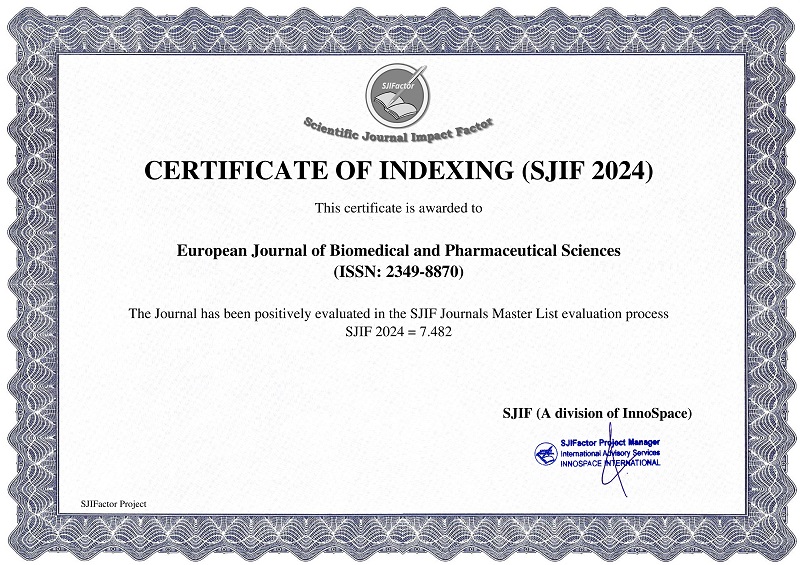EFFECT OF SMOKING ON MERCURY AND COPPER CONCENTRATION IN SMOKERS AND EX-SMOKERS
Pepic Esad*, Secic Damir, Kurtagic-Pepic Emina, Musanovic Jasmin, Naser Nabil, Metovic Azra, Lujinovic Almira and Dzubur Alen
ABSTRACT
Introduction: Smoking can cause accumulation of some harmful chemical elements in tissues such as heavy metals cadmium (Cd), lead (Pb), mercury (Hg), arsenic (As), cesium (Cs), etc. Smoking can also cause disturbances in the metabolism of trace elements such as copper, zinc and selenium. This is manifested by a change in their levels in biological material, primarily in blood, urine, hair and nails. The aim of the study was to determine the differences in the concentrations of mercury in urine and copper in blood serum of smokers and ex-smokers in relation to non-smokers. Methods: The study included 108 respondents divided into three groups. The first group of respondents consists of regular smokers (n=51), the second group of ex-smokers (n=38) and the third group of respondents who have never consumed tobacco (n=17). Determination of the level of mercury in urine was performed by the method of atomic absorption spectrophotometry with an electrothermal atomizer. Level of copper in blood serum was performed by spectrophotometric method without deproteinization. Results: The analysis showed that there is no statistically significant difference in the level of mercury in the urine of smokers compared to non-smokers and ex-smokers (p=0.09). There is a statistically significant difference in copper values in the blood serum compared to the examined groups (p=0.039). Conclusion: Smoking did not prove to be a significant factor for increased concentration of mercury in the urine, but it significantly affected the level of copper in the blood serum.
Keywords: Mercury concentration, Copper concentration, Smoking, Ex-smokers, Smokers.
[Full Text Article]
[Download Certificate]


 Impact Factor : 8.181
Impact Factor : 8.181 






